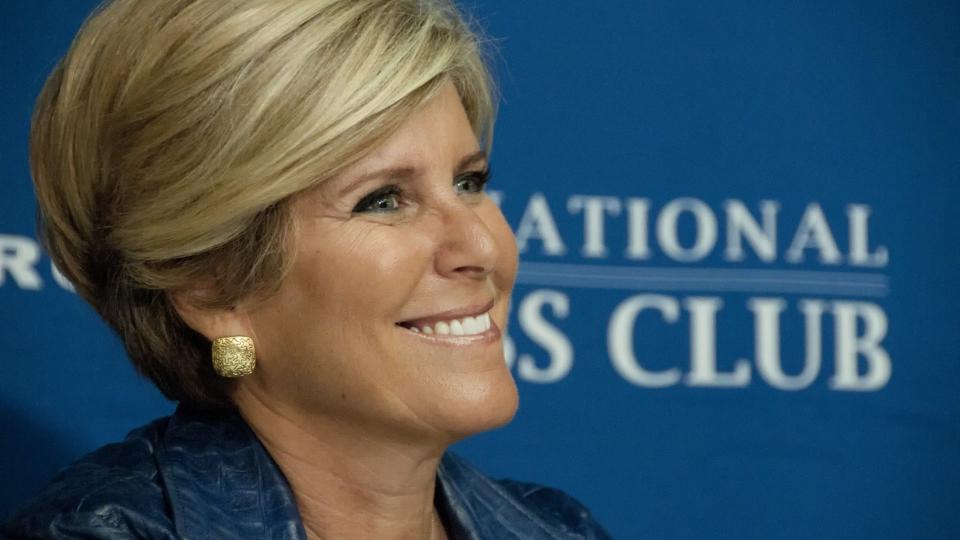Suze Orman: Here’s the Minimum You Need To Retire Early
3 min read
Famed financial guru Suze Orman once told Paula Pant on the “Afford Anything” podcast that $2 million simply isn’t enough to retire early on. So, how much does she say you will need to live comfortably in your golden years? She advocates saving significantly more — closer to $5 or $10 million in order to retire early.
Read Next: Retirement Savings: 4 Expenses Retirees Regret Keeping in Their Budgets, According to Experts
For You: 7 Common Debt Scenarios That Could Impact Your Retirement — and How To Handle Them
At GOBankingRates, we decided to go deeper and find out what the bestselling author thinks about early retirement in general and what advice she gives people who hope to quit their 9-to-5 sooner than later. Here is what Orman believes is necessary to retire early.
Wealthy people know the best money secrets. Learn how to copy them.
The Minimum Suze Orman Says You Need To Retire Early
In Episode #153 of the “Afford Anything” podcast, Orman told Pant and her listeners that $2 million is insufficient to retire early on. She said, “Two million is nothing. It’s nothing. It’s pennies in today’s world, to tell you the truth.”
She highly doubts that a few hundred thousand, a million, or even two million dollars will be enough in case of a catastrophe. When asked what a safe amount would be, she explained that it would be in the millions but that it depends on several factors, such as where you live, your expenses, and whether you own a home outright. She believes the actual amount that you would need to retire early would be closer to $5 or $10 million.
Check Out: 7 Places To Retire That Are Similar to Europe but Way Cheaper
Does Orman Agree With the FIRE Movement?
The first question Pant actually asked Orman was whether or not she agreed with the FIRE (Financial Independence, Retire Early) movement. Orman, a former waitress, adamantly disagreed with the trend. The FIRE movement encourages people to engage in extreme frugality in an effort to invest as much as possible and retire well before the traditional age of 65.
Orman, however, is not a fan of this approach. She noted that it has a fatal flaw in that it fails to take advantage of compounding interest. It also doesn’t take into account unexpected expenses that may come up throughout your lifetime, such as having to take care of aging parents or an ill spouse.
What Does Orman Advise for Hopeful Retirees?
The avid financial blogger said throughout the podcast that you should, “Live below your means but within your needs.” She explained that you can do this by “only buying needs vs. wants.”
Orman encourages individuals hoping to retire early to take advantage of matching contributions offered by employers and to reduce their expenses by paying off their mortgages. She also advises against withdrawing from Social Security before the age of 70.
In a recent blog titled “Don’t Make This Big Retirement Mistake,” she explained, “A benefit that starts at age 70 is 76% higher than if you start receiving your payout at age 62.”
How Do You Know If You Have Enough to Retire?
Orman does offer guidance for individuals who are unsure whether they have enough to retire. As reported in the article “Are You On Track for Retirement?” she advocates having at least 1x your current income saved by the age of 30. She also says you should have 3x your current income by the age of 40 and 6x by the age of 50. By age 60, you’ll need at least 8x your income and 10x by age 67.
If you haven’t quite met these goals, the popular podcaster recommends maximizing contributions to your retirement accounts and taking advantage of compounding interest. Compounding interest allows your money to make money off of itself, but the longer you wait to invest, the less chance the money has to grow.
Investing early, living within your means, and continuing to work can help ensure you are able to retire comfortably when you do.
More From GOBankingRates
This article originally appeared on GOBankingRates.com: Suze Orman: Here’s the Minimum You Need To Retire Early
Discover more from Slow Travel News
Subscribe to get the latest posts sent to your email.



